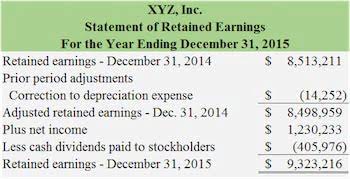
One of Oregon’s redeeming tax qualities is its absence of state or local sales taxes. Its property taxes are also below average when compared to other states. For details about mortgages in the state, including rates and specifics about each county, check out our comprehensive Oregon mortgage guide. oregon state income tax Exactly how much your employer deducts from your wages for federal income taxes depends on factors like your marital status, salary and whether you have any dependents. It’s also worth noting that the IRS made major revisions to the W-4 in recent years.
If I file as an S corporation with the IRS, how do I file with Oregon?
- Foreign insurers and domestic insurers controlled by foreign insurers are required to file insurance excise tax returns separately.
- Profit and prosper with the best of Kiplinger’s advice on investing, taxes, retirement, personal finance and much more.
- The state and each county assessor determine the value of property in each county.
- However, the entity is subject to Oregon tax on income from built-in gains and excess net passive income, if such income is taxed on the federal S corporation return.
- With Valur, you can build your wealth more efficiently at less than half the cost of competitors.
- Social Security tax is withheld at 6.2% and Medicare tax at 1.45% of your wages.
Similar to the personal income tax, businesses must file a yearly tax return and are allowed deductions such as wages paid, cost of goods sold, and other qualifying business expenses. These state income tax rates apply to income earned in 2025, which is reported on tax returns filed in 2026. The income brackets apply to single filers, but in many states, the brackets double for those married filing jointly. Oregon has a state income tax (4.75% to normal balance 9.9%) but no state payroll taxes or local income taxes to worry about. The state income tax rates vary depending on your income level, with progressive tax brackets in place to determine your tax liability. Oregon has a graduated state individual income tax, with rates ranging from 4.75 percent to 9.9 percent.
Tax Planning Ideas To Reduce Oregon Income Tax

Oregon has a relatively high cost of living and a number of retirement tax policies that could put a dent in the budgets of some retirees. Most notably, Oregon taxes income from retirement accounts like a 401(k) or an IRA at the full rates, which range from 4.75% to 9.9%. Taxable property includes real property, mobile homes, and some tangible personal property used by business. The state and each county assessor determine the value of property in each county. Measure 5, which was passed in November 1990, restricted non-school taxes on any property to $10 per $1,000 of real market value.
- If you were Black, mixed-race, Hawaiian, or Chinese, you had to pay a tax not levied on white Oregonians.
- Technically, you don’t have just one “tax bracket” – you pay all of the Oregon marginal tax rates from the lowest tax bracket to the tax bracket in which you earned your last dollar.
- Oregon has a graduated state individual income tax, with rates ranging from 4.75 percent to 9.9 percent.
- Understanding the latest EITC rates and thresholds is crucial for taxpayers who wish to maximize their potential credit and accurately plan their finances.
- One way to do so is to not wait to tax capital gains – the profits from the sale of stocks, bonds, and other assets.
- Statewide, the average effective property tax rate (annual property taxes as a percentage of home value) is 0.86%.
Oregon tax breaks often get written in Washington, D.C.

Oregon’s state income tax brackets range from 4.75% to 9.9%, depending on your income and filing status. For most taxpayers, state income taxes for 2024 are due on April 15, 2025. Residents of Portland should also factor in the city’s $35 arts tax, which applies to many adult residents. Oregon was one of the first Western states to adopt a state income tax, enacting its current tax in 1930. It consists of four income tax brackets, with rates increasing from 4.75% to a top rate of 9.9%. That top marginal rate is one of the highest rates in the country.

The personal exemption is $249 each per taxpayer and eligible dependent. In a graduated, or progressive, tax system like Oregon’s, the effective, or actual, tax rate you pay is a blend of tax rates. Retail sales taxes are an essential part of most states’ revenue toolkits, responsible for 24 percent of combined state and local tax collections.

Standard deduction
- Forty-four states levy a corporate income tax, with top rates ranging from a 2.25 percent flat rate in North Carolina to a 11.5 percent top marginal rate in New Jersey.
- The Oregon income tax is a state-level tax imposed on the income of individuals, businesses, or other legal entities.
- In Oregon, the average property tax rate as a percentage of assessed home value is 0.77% according to the Tax Foundation.
- Federal taxes may be due on Social Security for retirees with multiple income sources.
- This tool is freely available and is designed to help you accurately estimate your 2022 tax return.
As you can see from the table, the 35% bracket begins at $250,525 of income. This means that the dollars the individual earns over $250,525 will be taxed at 35%. But dollars below that amount will be taxed at the rate corresponding to the brackets they fall into. For income earned in 2024 and reported on tax returns filed in 2025, taxpayers are subject to the Oregon state Certified Bookkeeper tax rates shown in the table below.
The county tax collector collects the taxes and distributes the funds to the local districts. Tax deductions are a reduction in the amount of income that is subject to taxation. It allows taxpayers to lower the amount of taxable income they have, which in turn reduces the amount of tax they owe. Tax deductions are available for a wide range of expenses, such as charitable donations, mortgage interest, medical expenses, and business expenses.
Open all references in tabs: [1 – 3]